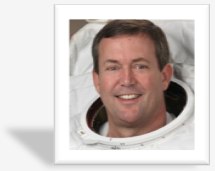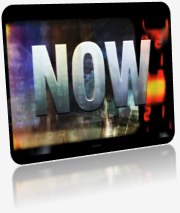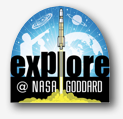Students from across the nation will gather at NASA’s Kennedy Space Center in Florida May 4-7 for the NASA Explorer Schools National Student Symposium. Future leaders in science, technology, education and math, or STEM, will present their work to NASA scientists, engineers, fellow students and educators.
The competitively selected group of fourth through 12th-graders consists of 58 students and their teachers. The various student research projects were designed to improve learning and bolster interest in STEM disciplines.
The students were required to complete an original investigation focused on existing NASA missions or research interests. Students presented their work to experts at virtual regional symposia held January through March at NASA centers using the agency’s Digital Learning Network.
In addition to presenting their work at the national symposium, participants also will learn more about NASA’s research activities and exploration missions. Students will tour a variety of operational facilities at Kennedy, including the space shuttle launch complex, and participate in a webcase of a career panel featuring NASA scientists, engineers and specialists.
Congratulations to the students and schools attending the National Student Symposium:
School Name
|
Grade
|
Topic
|
Orleans Elementary School
|
4
|
Hot Air Balloon
|
Forest Heights Elementary School
|
5
|
When They Build It, We Will Come
|
Forest Lake Elementary Technology Magnet School
|
5
|
Hand Sanitizer-Friend or Foe?
|
Franke Park Elementary School
|
5
|
The Insulation Properties of Snow
|
Johnson Magnet for Science, Technology, Engineering and Mathematics
|
5
|
NASA Lunar Plant Growth Chamber
|
Kate Waller Barrett Elementary School
|
5
|
Save the Earth
|
Kenneth J Carberry Intermediate School
|
5
|
Growing Crystals
|
Mack Benn Jr. Elementary School
|
5
|
It’s Just Right
|
Oceanair Elementary School
|
5
|
What is the Effect of Temperature on the Survival Rate of Yeast?
|
|
|
|
Harding Middle School
|
6
|
Testing the Effects of Altering Viscosities of Nutritions Supplements
|
Hobgood Elementary School
|
6
|
One if By Sea, Two if By Land
|
Lebanon Middle School
|
6
|
Growing plants on the Moon
|
Northeast Nodaway R-V
|
6
|
The Effect of the Number of Straws on the Distance the Rocket Racer Travels
|
Dr. Albert Einstein Academy
|
7
|
Lunar Plant Growth Chamber
|
Edward Harris Jr. Middle School
|
7
|
Dirty, Stinky Water
|
Ellen Ochoa Learning Center
|
7
|
Moldilocks and the FunGuy (Fungi)
|
Island City Research Academy
|
7
|
Life on the Moon
|
Broughal Middle School
|
8
|
Quasar or Black Hole
|
Ferndale Middle School
|
8
|
Planting the Future
|
Hudson Middle School
|
8
|
Water Filtration Challenge
|
Johnston Middle School
|
8
|
Microbes in Space
|
Key Peninsula Middle School
|
8
|
Waste Water Recycling System
|
Shelburne Community School
|
8
|
NASA On Target Challenge
|
Two Rivers Magnet Middle School
|
8
|
Life on Europa
|
Middle School at Parkside
|
7, 8
|
Mission to Phoebe
|
|
|
|
Albertville High School
|
11
|
Engineering Design Challenge: Water Filtration
|
Central Florida Aerospace Academy of Kathleen High School
|
11
|
The Effect of Sodiium Hypochlorite on the Efficiencies of Carbon Filters
|
Covenant Christian High School
|
9
|
Parabolar in Sapce and Time
|
Newnan High School
|
11
|
Lunar Surface Instrumentation
|
 Here is a great student activity for the springtime — have your students construct and launch a soda bottle rocket. This fun but highly educational activity demonstrates Newton’s Laws of Motion. Find out about other ways you can challenge your students by doing some of the other extensions to the Lunar Nautics module.
Here is a great student activity for the springtime — have your students construct and launch a soda bottle rocket. This fun but highly educational activity demonstrates Newton’s Laws of Motion. Find out about other ways you can challenge your students by doing some of the other extensions to the Lunar Nautics module. Here is a great student activity for the springtime — have your students construct and launch a soda bottle rocket. This fun but highly educational activity demonstrates Newton’s Laws of Motion. Find out about other ways you can challenge your students by doing some of the other extensions to the Lunar Nautics module.
Here is a great student activity for the springtime — have your students construct and launch a soda bottle rocket. This fun but highly educational activity demonstrates Newton’s Laws of Motion. Find out about other ways you can challenge your students by doing some of the other extensions to the Lunar Nautics module.

 NASA Explorer Schools would like to extend an invitation to K-12 students across the United States to participate in a webchat with astronaut and veteran spacewalker Mike Foreman. The event will take place from 1 to 2 p.m. EST on Nov. 22, 2010. Foreman will answer questions about his spacewalking experiences, living and working in the microgravity environment of space, and his unique career path from high school through astronaut training.
NASA Explorer Schools would like to extend an invitation to K-12 students across the United States to participate in a webchat with astronaut and veteran spacewalker Mike Foreman. The event will take place from 1 to 2 p.m. EST on Nov. 22, 2010. Foreman will answer questions about his spacewalking experiences, living and working in the microgravity environment of space, and his unique career path from high school through astronaut training. In this episode of NASA Now, Camille Alleyne, Assistant Program Scientist for the International Space Station discusses the unique research environment onboard the ISS while sharing information about many of the past, present and planned experiments. To date, more than three hundred experiments have been conducted on the ISS. Through this research, we will better understand the effects of microgravity on the human body, further develop technology, and expand our knowledge about our Earth and about the universe.
In this episode of NASA Now, Camille Alleyne, Assistant Program Scientist for the International Space Station discusses the unique research environment onboard the ISS while sharing information about many of the past, present and planned experiments. To date, more than three hundred experiments have been conducted on the ISS. Through this research, we will better understand the effects of microgravity on the human body, further develop technology, and expand our knowledge about our Earth and about the universe. Patricia Smeyers, a teacher from Secaucus Board of Education, has a great idea for a Lunar Rover Project. Students design a new lunar rover for the future. They create their designs using cloud-based 3-D modeling software and present their engineered 3-D model and research.
Patricia Smeyers, a teacher from Secaucus Board of Education, has a great idea for a Lunar Rover Project. Students design a new lunar rover for the future. They create their designs using cloud-based 3-D modeling software and present their engineered 3-D model and research. Liz Warren, NASA Johnson Space Center operations lead for the International Space Station Medical Project, discusses why exercise and nutrition are important to maintaining good health on Earth and even more important to astronauts on the International Space Station. She also discusses how living in space causes changes in the human body such as loss of bone density, decreased cardiovascular fitness, and muscle atrophy. Astronauts participate in experiments to measure changes in their bodies so that we can prevent those types of changes in the future.
Liz Warren, NASA Johnson Space Center operations lead for the International Space Station Medical Project, discusses why exercise and nutrition are important to maintaining good health on Earth and even more important to astronauts on the International Space Station. She also discusses how living in space causes changes in the human body such as loss of bone density, decreased cardiovascular fitness, and muscle atrophy. Astronauts participate in experiments to measure changes in their bodies so that we can prevent those types of changes in the future. When it comes to taking the next “giant leap” in space exploration, NASA is thinking small — really small – really, really small. In this NASA Now program, Dr. Mike Oye describes how researchers can deliberately order and structure matter at the molecular level to watch amazing new properties emerge.
When it comes to taking the next “giant leap” in space exploration, NASA is thinking small — really small – really, really small. In this NASA Now program, Dr. Mike Oye describes how researchers can deliberately order and structure matter at the molecular level to watch amazing new properties emerge. If you’re looking for ways to extend the
If you’re looking for ways to extend the 